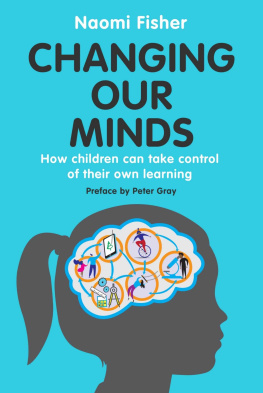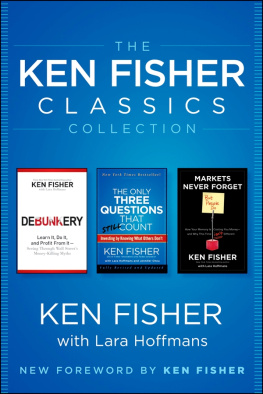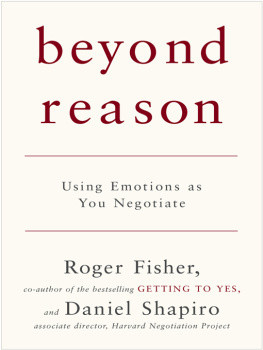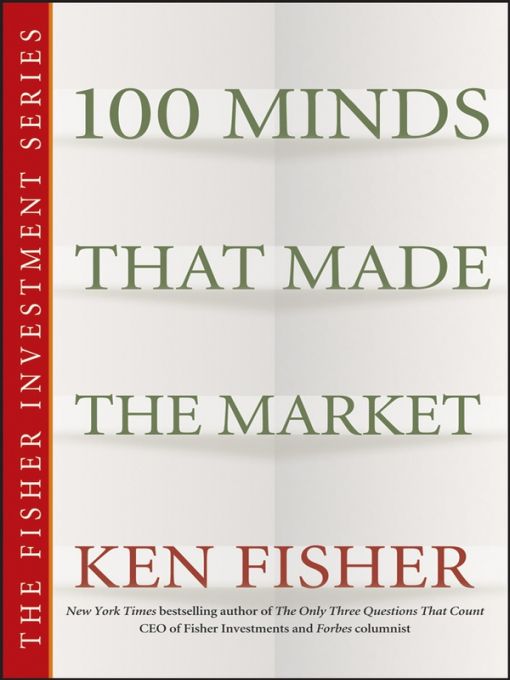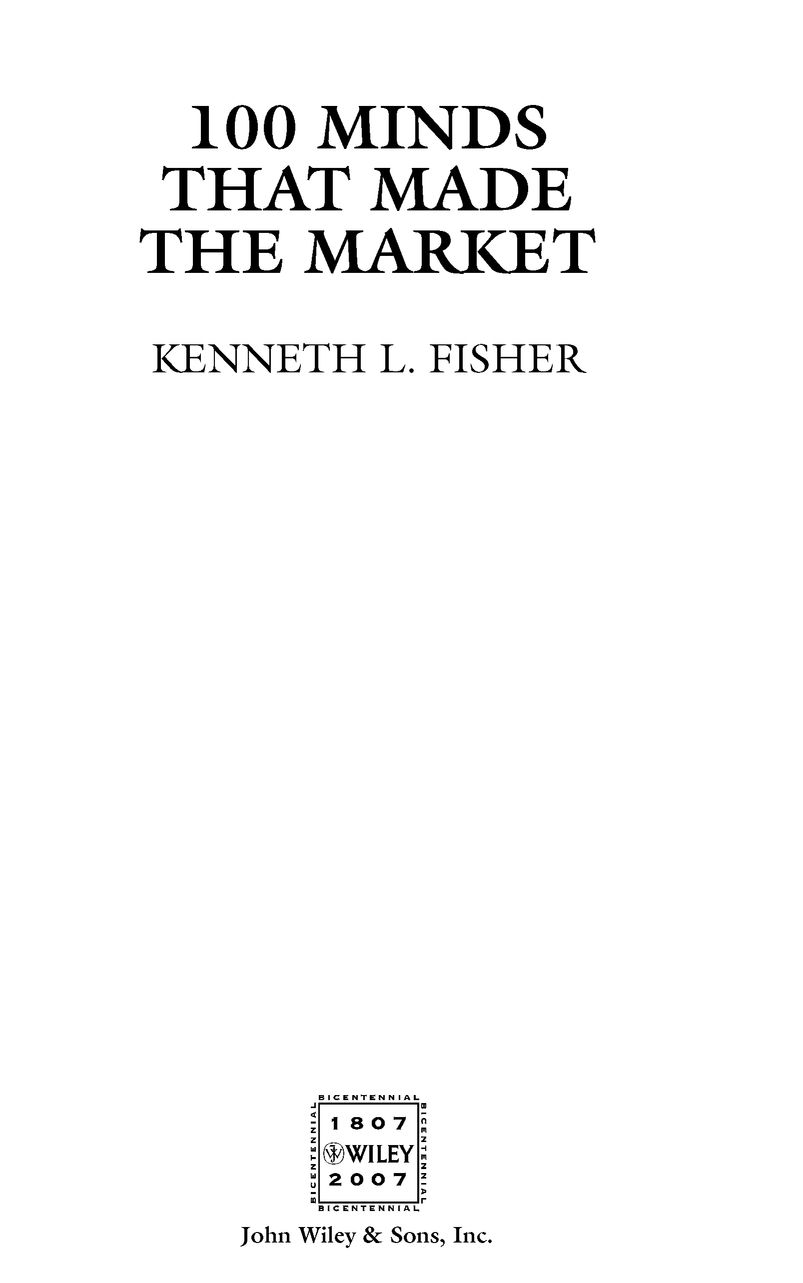Table of Contents
The Fisher Investment Series
The Only Three Questions That Count
100 Minds That Made the Market
The Wall Street Waltz
This book is dedicated to anyone pursuing serious, complex concepts that are inherently new and different from those already known.
PREFACE
This book was first completed in 1993. The standard I used was to include only people who had somehow, in some way, had some material impact on financeand who were deadunder the assumptions I could be completely critical and that dead folk dont sue. Partly, as I said in the original introduction, that also helped me avoid writing about my own father, who I felt uncomfortable about discussing in his lifetime.
In the original introduction I cited interesting people who were living, including Warren Buffett, John Templeton, Ivan Boesky, and Michael Milken. They are still alive today. But, as I mentioned then, these more modern names have a great deal of media about them readily available, so I dont feel their exclusion from this book, alive or deceased, is a major disadvantage to readers.
As for my father, who passed away in 2004, I covered him then at some length and detail in the Wiley Investment Classics edition of Common Stocks and Uncommon Profits and Other Writings. And you can certainly find all you need about him there. By comparison, most of the folks covered in this book are vastly harder to learn about without a great deal of effort. These cameo biographies allow you to learn a great deal of overview in a few minutes, and the appendix materials allow you to dig further if you want to really delve into these fascinating minds.
So, the list of 100 names is essentially as valid today as it was in 1993. While reviewing the book, I discovered that I would change little, if anything at all.
I have changed my mind materially about Gerald Loeb. I regret I was much too critical of him when I wrote his section. As Ive aged Ive come to appreciate him more and more. In my mind at the time I had been comparing him to influential shapers of market thought like Ben Graham, Harry Markowitz, or my fatherand he came up short. What I didnt appreciate about him at the time was how powerfully he motivated young and new investors to get involved with the markets for the first time. He brought, arguably, hundreds of thousands to the world of stock investing at a time when there were few others to encourage themand over decades when they succeeded. I tried to make it up to him by recently writing a new, more laudatory introduction for his updated Wiley Investment Classic, The Battle for Investment Survival. In some ways, as I said there, he reminds me a little of the Jim Cramer of his day: Flamboyant, seen everywhere, endlessly energetic, for the little guy, quick with a word, and encouraging everyone that they could do it themselves. He had a tremendous amount to do with moving people toward stocks from 1935, when his book came out in a bleak world into and through the 1960s when common stock investing for the little guy had become much more common. I encourage you to read his book almost as a 35 year history of the evolution of American stock markets.
After writing this book, I met Ben Sell em Smiths son who impressed upon me that how despite his fathers tough and boisterous attitude in business, he was consistently a soft and gentle father. That made me realize how little I may actually have captured about any of these peoples real private lives. As a student of their lives, I wrote mostly about their reputations and legends, as had been captured in books and articles. It is impossible to know the secrets people chose to keep privatethese matters are often never known. But Smiths son made me realize that all these people, as exceptional as they were, were also probably more complex than I gave them credit for.
There is one point I didnt cover in the book that is clear to me now as the years have rolled by: With very few exceptions like John Law and the Rothschilds, these 100 Minds were Americans. Finance and capitalism have been infinitely more impacted than the rest of the world. It may be a deficiency that I didnt include that great Scotsman, Adam Smith, whose book from the year of our nations birth is still a beacon of influence, hope, and direction, and almost divinely inspired as if by his own infamous invisible hand. But like many of the living modern names, a quick internet search for this famous man will render a large collection of material. If you havent studied Smith, I encourage you to do so, as he is one of the most influential forces on the creation and evolution of capitalism.
Most of the people in this book are harder to learn about. And an overwhelming number are Americans. It is irrefutable that most of the big forces on capitalism and capital markets have been American. The more I think, the more I see that there just arent many from abroad. The people who had the impact and changed the way we thought came from America. That is still true today when we look at the living. The legends and the influencers come from America, few from elsewhere.
Why is this? Increasingly Ive come to see it as a function of America being the un-culture. In most countries it has always been true they have a monolithic or dualistic culture. One dominant culture and maybe one or a few lesser ones! France, for example, was always based primarily on a single nationality and Catholicism. While in various countries the Catholics and the Protestants squabbled, the culture was narrow at best. But in America more than anywhere and from its more recent beginning, everyone came from different backgrounds, without a common culture, creating the un-culture that is America. And I submit that an un-culture is more fertile soil for capitalism and capital markets than any culture.
In America a product that may start out catering to a tiny minority can break out to the vast majority. The same goes for the bad as for the good. The Klu Klux Klan came from the Deep South and became long and strong regionally but didnt sweep the nation. But Coca-Cola and the blues also came from there and swept over the world. Just so, today someone might start a product, financial or not, aimed at some small subset of America that comprises a large number of consumers, for example, Chinese Americansand have the product take off and cross over to the rest of America. Sound far-fetched? It happens all the time. The burrito, for example, is not really Mexican food. It was created in California for Mexican-Americans and is now eaten everywhere. Examples are endless. But this book is about finance and in finance the new ideas come from America. Whether modern finance from the mind of Harry Markowitz la mean variance optimization, or original commingled mutual funds, or, more recently, exchange traded funds, the discount broker, collateral derivative obligationsthe list is endless. The new ideas come from America.
In a strong monolithic or dualistic culture it is very difficult to establish new ideas, challenge old ones, and change the status quo because the dominant culture can suppress socially with impunity. It is, for example, how and why it was so easy to excommunicate Galileo. But capitalism draws its success from change, creative destruction, renewal, the young upstart wiping out the old guard, then becoming the new old guard about to be wiped out. This occurs best where cultural impediments are fewest, in an un-culture. People from every country, national origin, religion, and race have succeeded here.








